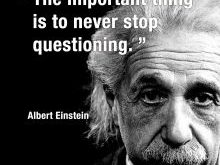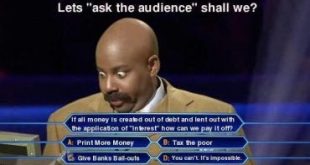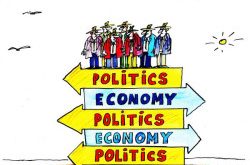La ‘cancel culture’ — une menace pour le débat public L’échange libre des informations et des idées, qui est le moteur même des sociétés libérales, devient chaque jour plus limité. La censure, que l’on s’attendait plutôt à voir surgir du côté de la droite radicale, se répand largement aussi dans notre culture : intolérance à l’égard des opinions divergentes, goût pour l’humiliation publique et l’ostracisme, tendance à dissoudre des questions politiques...
Read More »Epistemic humility — an intellectual virtue
Epistemic humility — an intellectual virtue Being a true expert involves not only knowing stuff about the world but also knowing the limits of your knowledge and expertise. It requires, as psychologists say, both cognitive and metacognitive skills. The point is not that true experts should withhold their beliefs or that they should never speak with conviction. Some beliefs are better supported by the evidence than others, after all, and we should not...
Read More »Der Glaube an die Wissenschaft
Der Glaube an die Wissenschaft Betrachtet man den Verschwörungsirrsinn, der sich dieser Tage im Internet tummelt, kann man nur zu dem Schluss kommen: Der Irrationalismus ist auf dem Vormarsch. Aber dieser erschreckende Vormarsch lässt sich nicht stoppen, indem die Wissenschaft selbst in einen ideologischen Tunnel fährt. Ganz gleich, wie überzeugt man von seiner Sache ist: Als Aktivist muss man in einer Demokratie bereit sein, für seine Überzeugung auf dem...
Read More »Time to rewrite textbook chapters on money
Time to rewrite textbook chapters on money This article has discussed how money is created in the modern economy. Most of the money in circulation is created, not by the printing presses of the Bank of England, but by the commercial banks themselves: banks create money whenever they lend to someone in the economy or buy an asset from consumers.And in contrast to descriptions found in some textbooks, the Bank of England does not directly control the quantity...
Read More »Says
[embedded content] Straight out of the magician’s hat. Absolutely fabulous.
Read More »Embarrassing mistakes in french
Embarrassing mistakes in french [embedded content]
Read More »Sunshine adagio
[embedded content]
Read More »Transmission of coronavirus among children
Transmission of coronavirus among children These findings demonstrate that SARS-CoV-2 spread efficiently in a youth-centric overnight setting, resulting in high attack rates among persons in all age groups, despite efforts by camp officials to implement most recommended strategies to prevent transmission. Asymptomatic infection was common and potentially contributed to undetected transmission, as has been previously reported. This investigation adds to the...
Read More »The economics-politics divide
Duncan Weldon made a good point recently when he tweeted that the “disconnect between British political discourse and opinion of mainstream economic opinion feels extreme” … Which poses the question. Why is there the disconnect Duncan notes? Here are some (non-exclusive possibilities): – The transmission mechanism from academic economics to policy is broken. This is partly a supply-side problem. Academics are more concerned with bureaucracy and writing unreadable, unread and...
Read More »Original sin in economics
Original sin in economics Mathematics, especially through the work of David Hilbert, became increasingly viewed as a discipline properly concerned with providing a pool of frameworks for possible realities. No longer was mathematics seen as the language of (non-social) nature, abstracted from the study of the latter. Rather, it was conceived as a practice concerned with formulating systems comprising sets of axioms and their deductive consequences, with...
Read More » Lars P. Syll
Lars P. Syll







